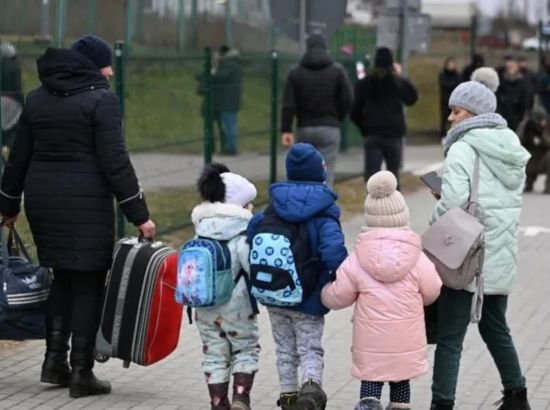
Go back to Ukraine abuse rising—that’s the message many Ukrainian refugees in Poland say they’re increasingly hearing. What began as compassion and solidarity has, for many, turned into hostility, verbal attacks, and xenophobic harassment.
Svitlana, a Ukrainian mother living in Poland, says her daughter once loved her school. But now the atmosphere has shifted. “A boy told her, ‘Go back to Ukraine,’” she said. Just a day later, her daughter was mocked by older students pretending to dodge missiles—just days after a Russian strike killed civilians in their hometown. “She came home crying,” Svitlana recalled.
Her case is not isolated. Dozens of Ukrainians interviewed say abuse on public transport, in schools, and across social media has grown. With Poland’s presidential election just days away, concerns over refugee treatment are mounting.
Poland once welcomed Ukrainian war refugees with open arms. Now, data reveals a chilling change. A March 2025 poll by CBOS shows only 50% of Poles now support accepting Ukrainian refugees—down from 81% two years ago.
Svitlana, who asked to remain anonymous due to safety concerns, shared screenshots of complaints sent to her daughter’s school. At her workplace, she says, colleagues increasingly criticize Ukrainians as “ungrateful” or “entitled.” Many of her friends are considering returning to Ukraine despite the risks.
This shift has also been observed by Natalia Panchenko, a rights activist in Warsaw. “Three years ago, people gave their homes and hearts. Today, some of those same people are hostile,” she said. Her foundation, Stand with Ukraine, has documented a sharp rise in anti-Ukrainian hate—both online and in real life.
The phrase “go back to Ukraine abuse rising” has become emblematic of a larger political narrative. As Poland’s presidential race heats up, candidates are taking markedly different positions on the refugee issue.
Front-runner Rafal Trzaskowski, once known for his pro-Ukraine stance, is downplaying it during the campaign. Analysts say he’s trying to win over centrists amid growing discontent over refugee aid. Even he now promises to cut welfare programs for Ukrainians.
Meanwhile, conservative candidate Karol Nawrocki opposes NATO and EU membership for Ukraine, while far-right populist Slawomir Mentzen is openly pro-Putin. Another extreme candidate, Grzegorz Braun, tore down a Ukrainian flag in April and is under police investigation for inciting hatred.
Experts believe this surge in xenophobia isn’t entirely organic. Michal Marek, who leads an anti-propaganda NGO, says Russian Telegram channels are spreading anti-Ukrainian messages. These posts, often Google-translated, allege Ukrainians are draining Poland’s budget, disrespecting locals, and escalating war.
“This content is designed to manipulate emotions,” Marek warns. “It’s no coincidence this surge coincides with the elections.”
Poland’s government recently issued an alert over what it called an “unprecedented” Russian interference campaign to sway voters and inflame anti-Ukraine sentiment. Moscow has denied any role.
While many Poles still support Ukraine, a vocal segment is becoming hostile—mirrored in daily experiences for refugees. With 2.5 million Ukrainians in Poland (7% of the population), the social fabric is showing signs of strain.
For families like Svitlana’s, the toll is personal and immediate. Her daughter now dreads school. Friends talk of going home, not out of safety, but from fear of rejection.
And with political winds shifting, the question looms: Will Poland’s embrace of Ukraine survive the next election?